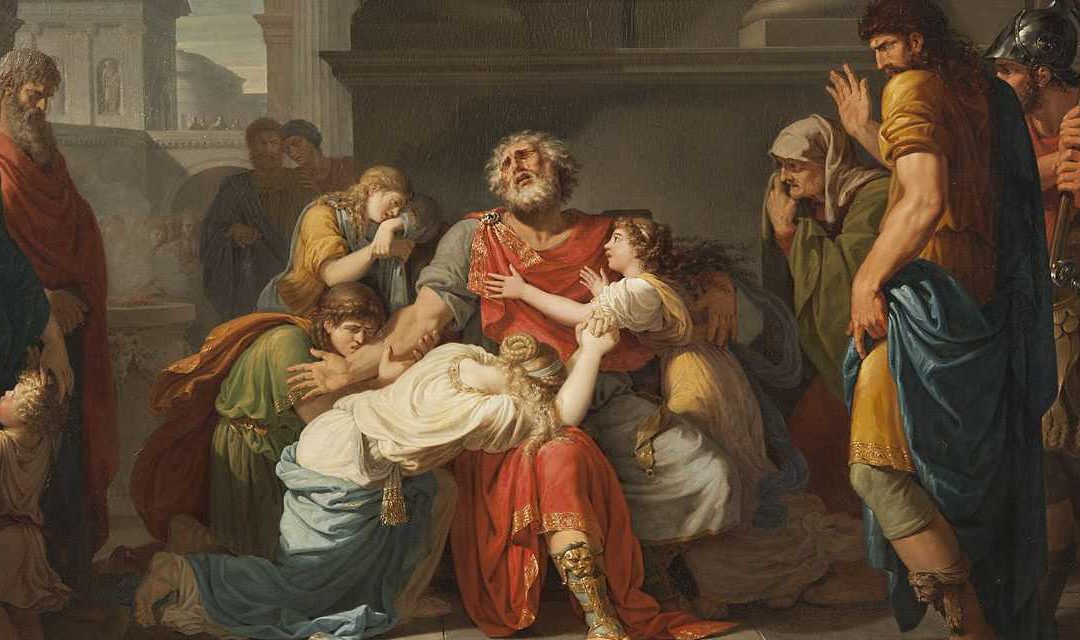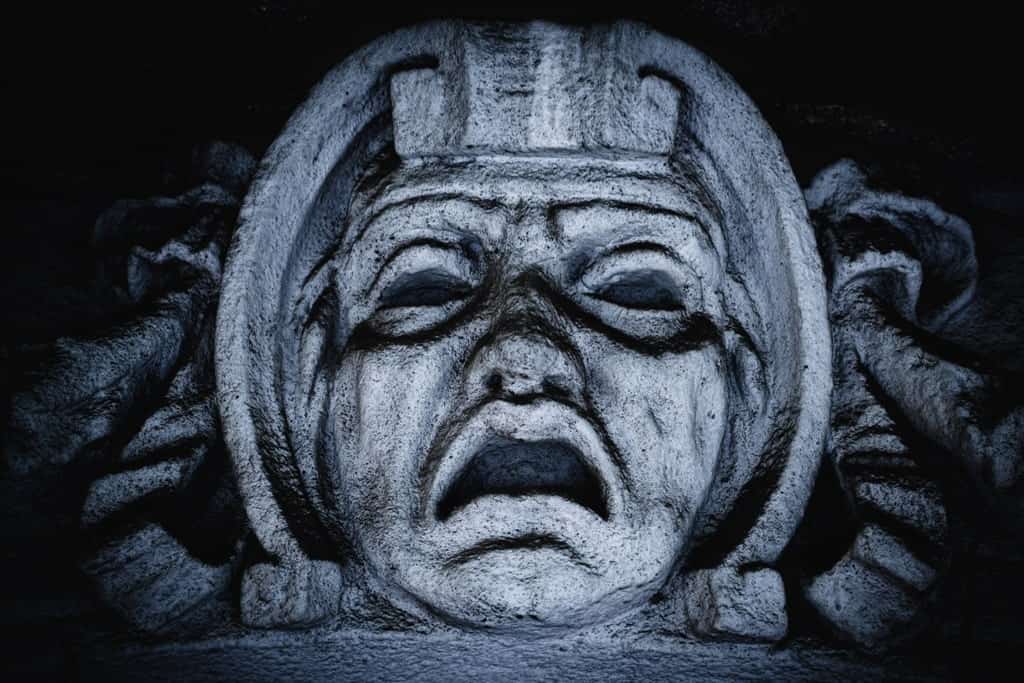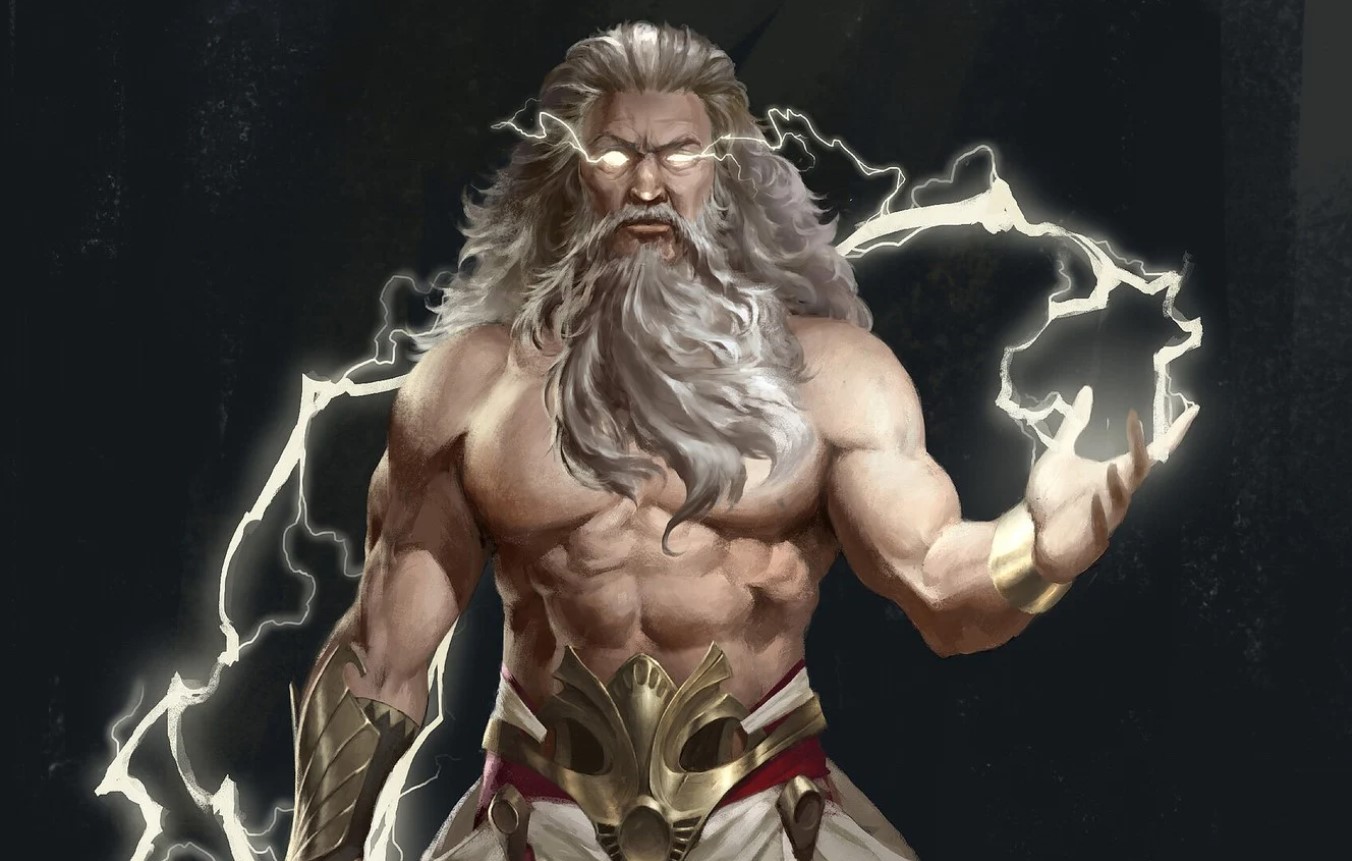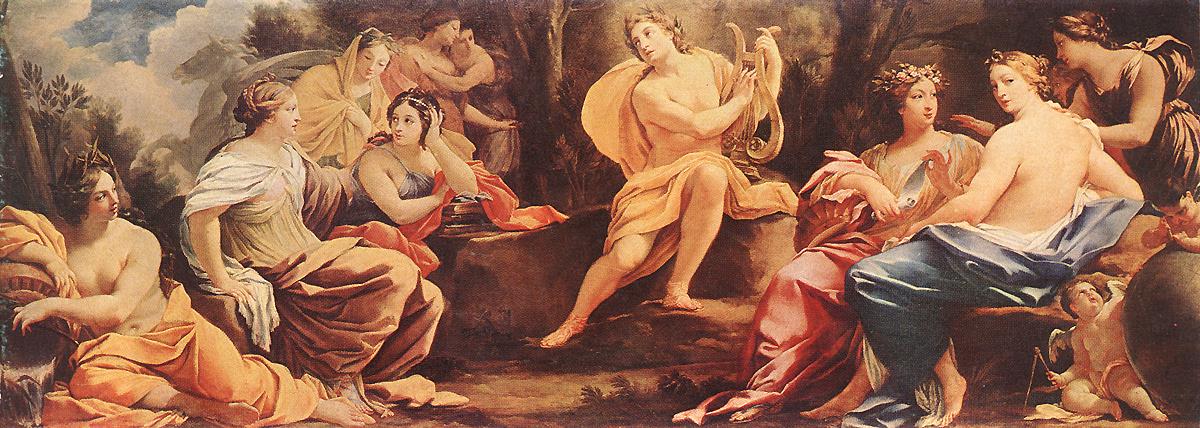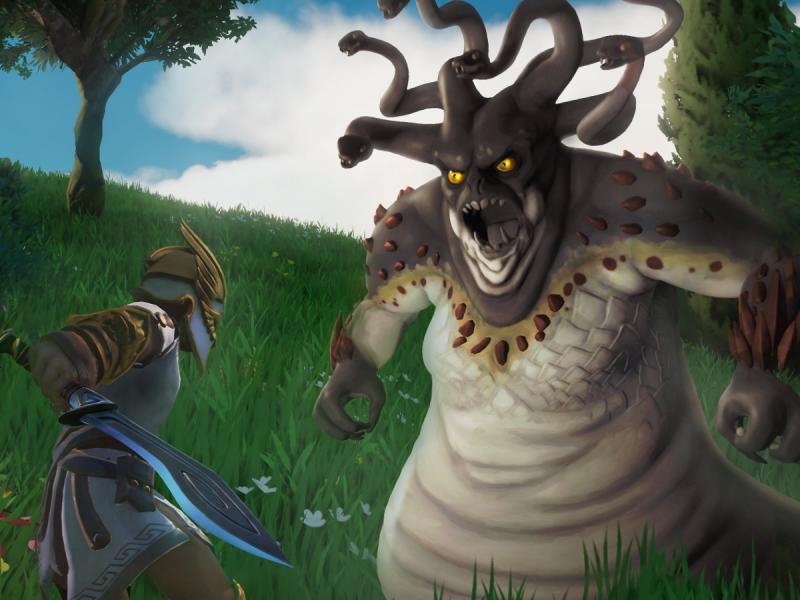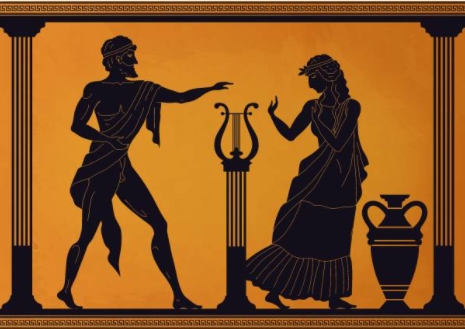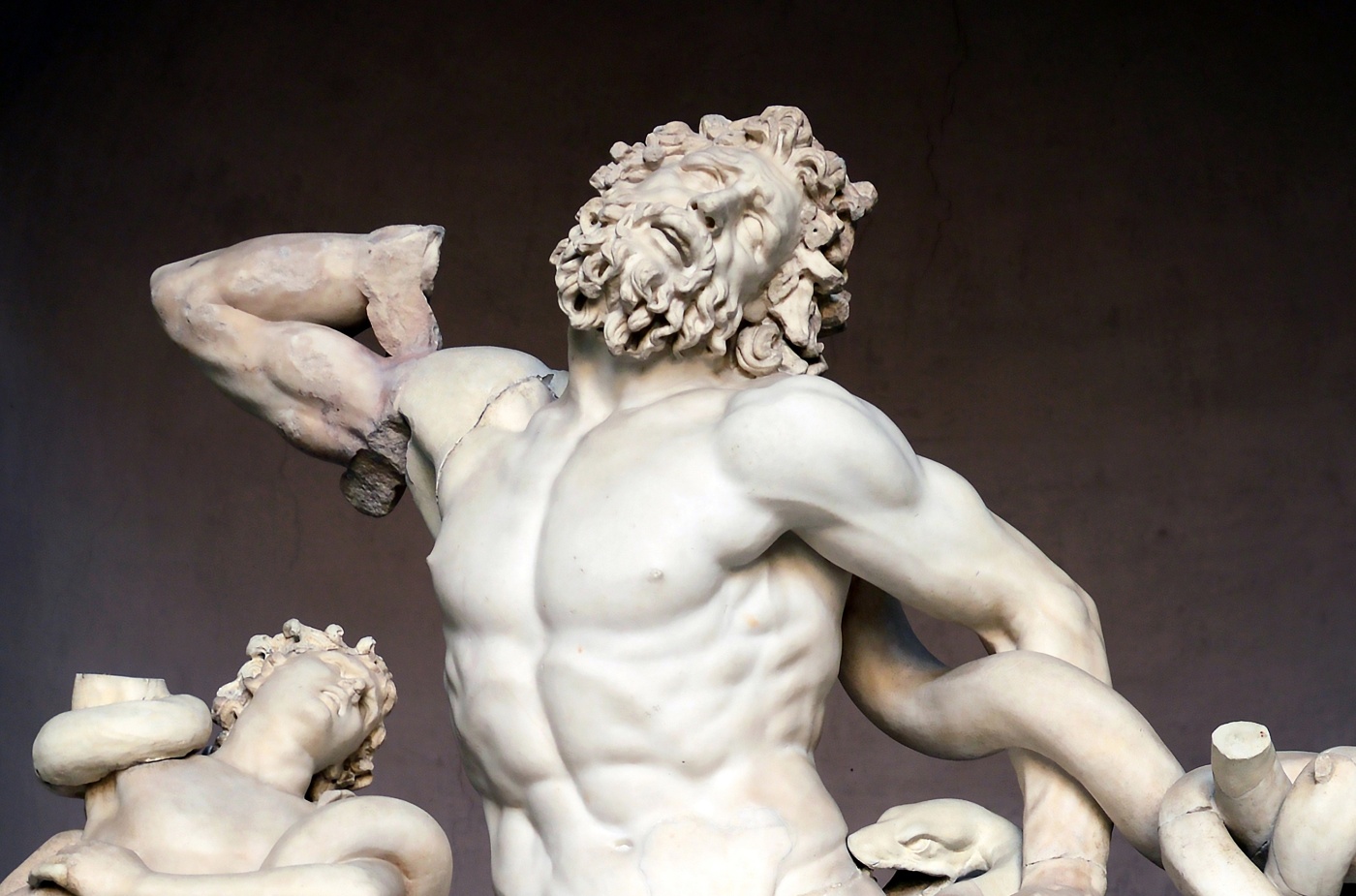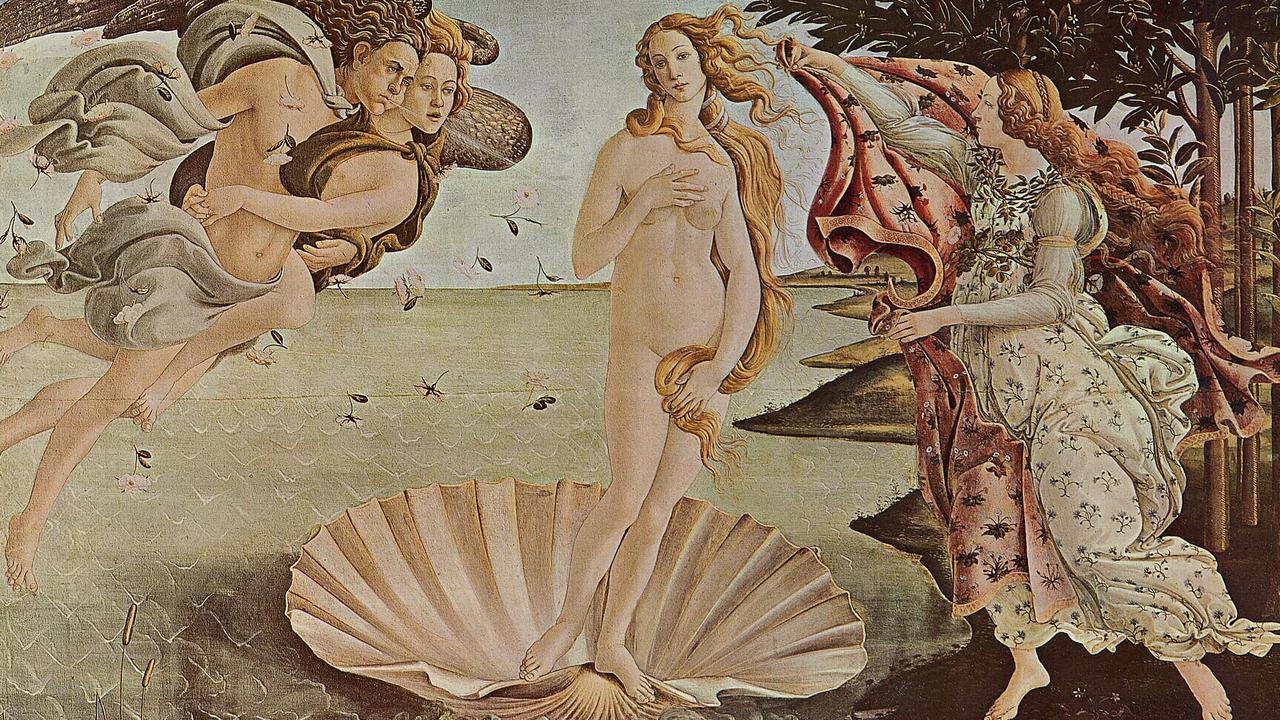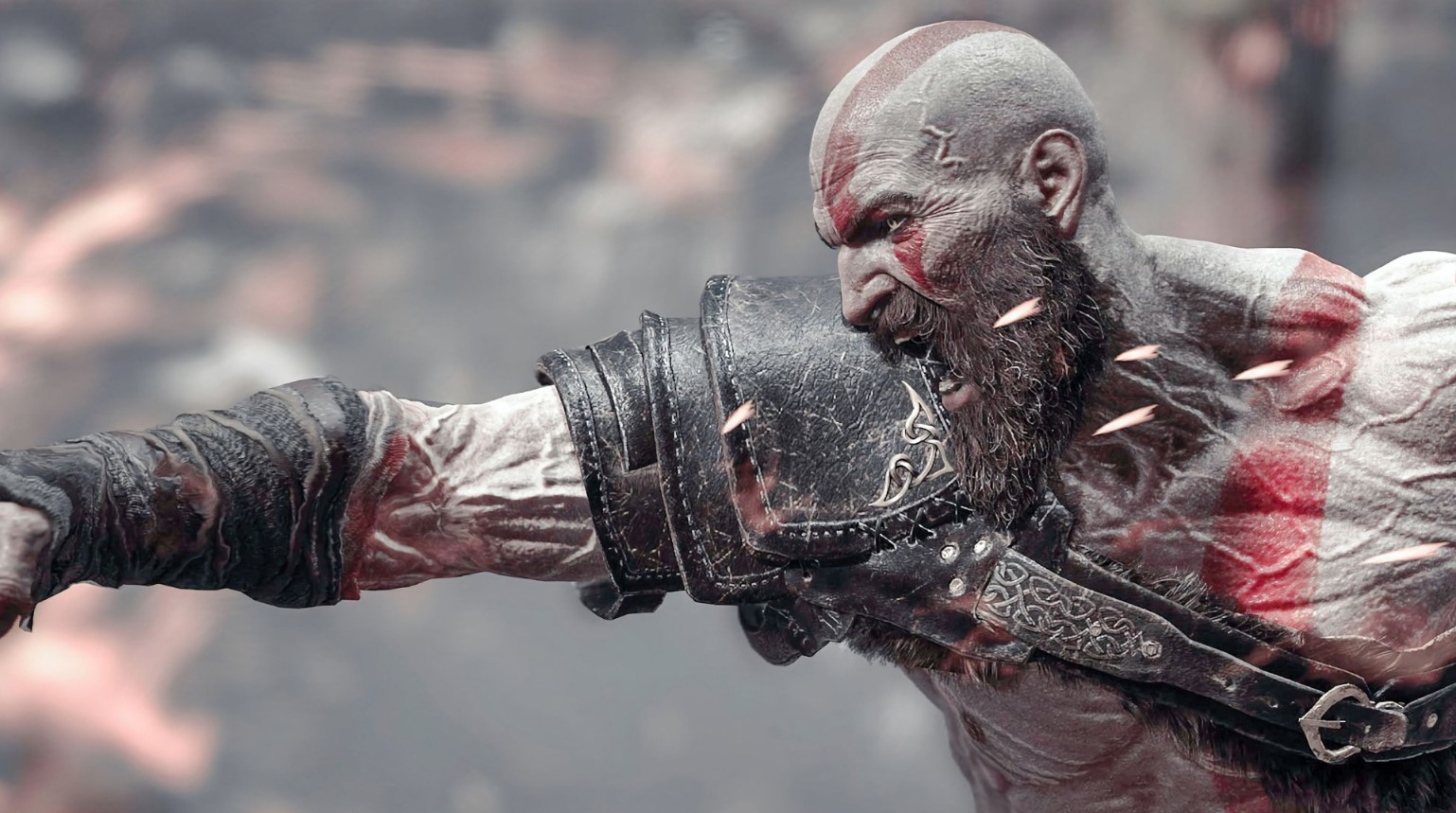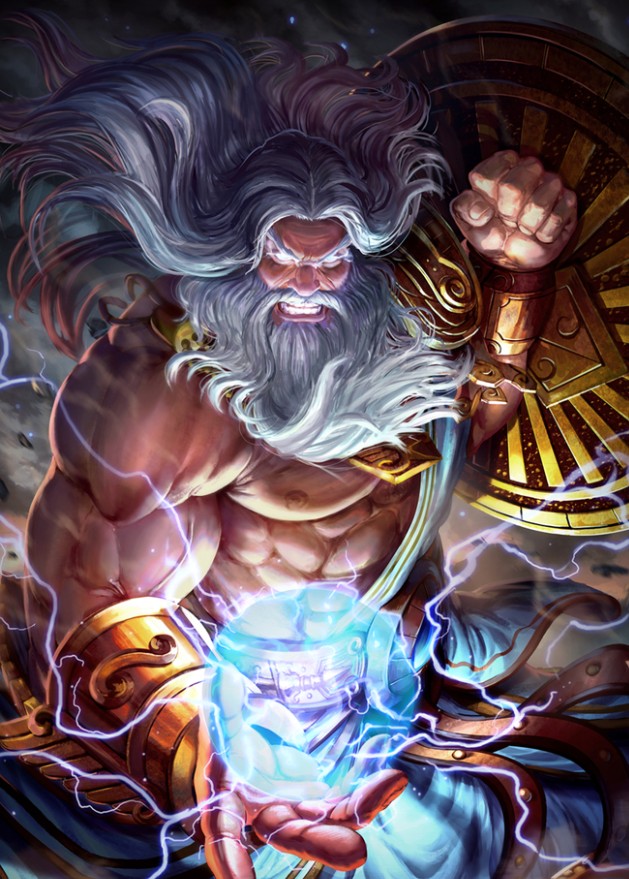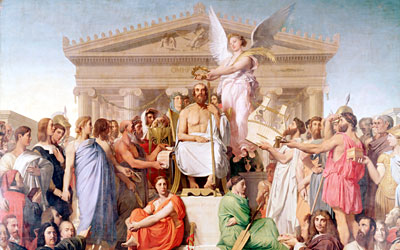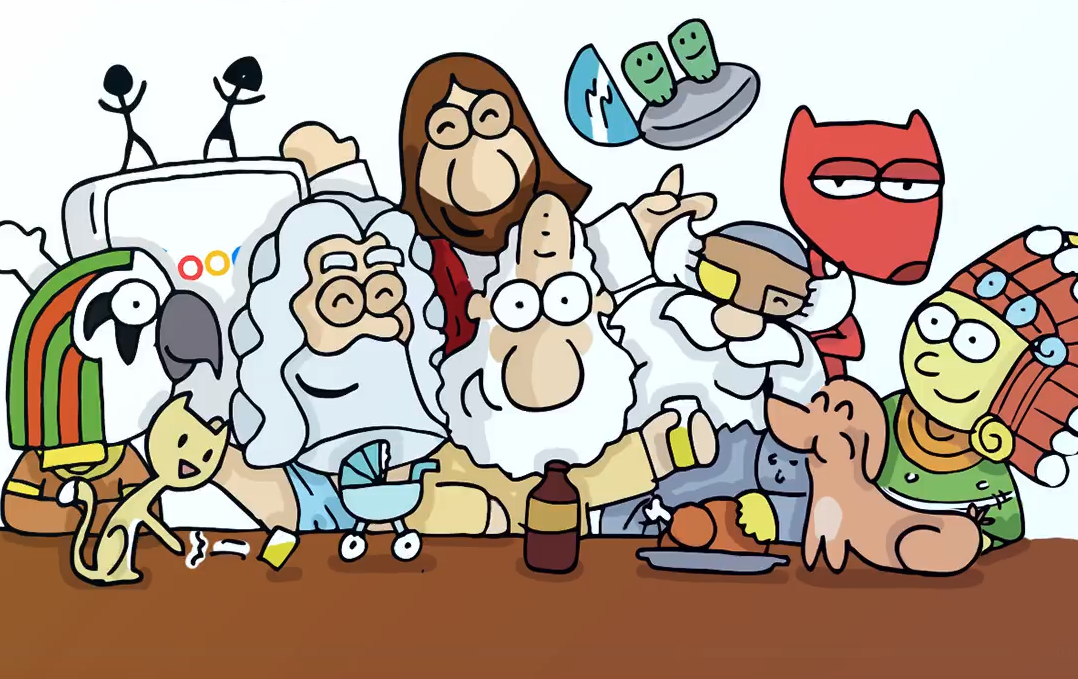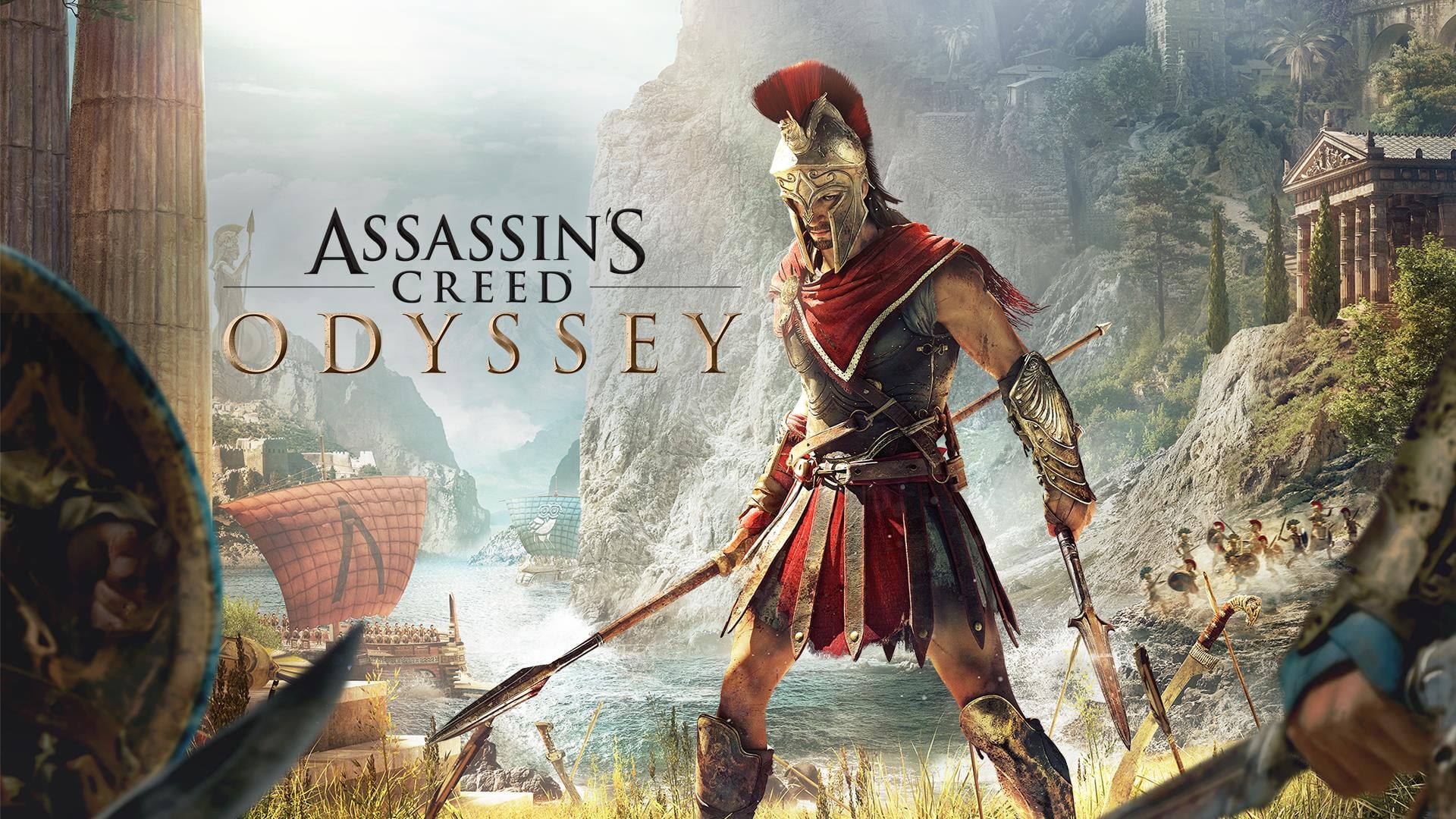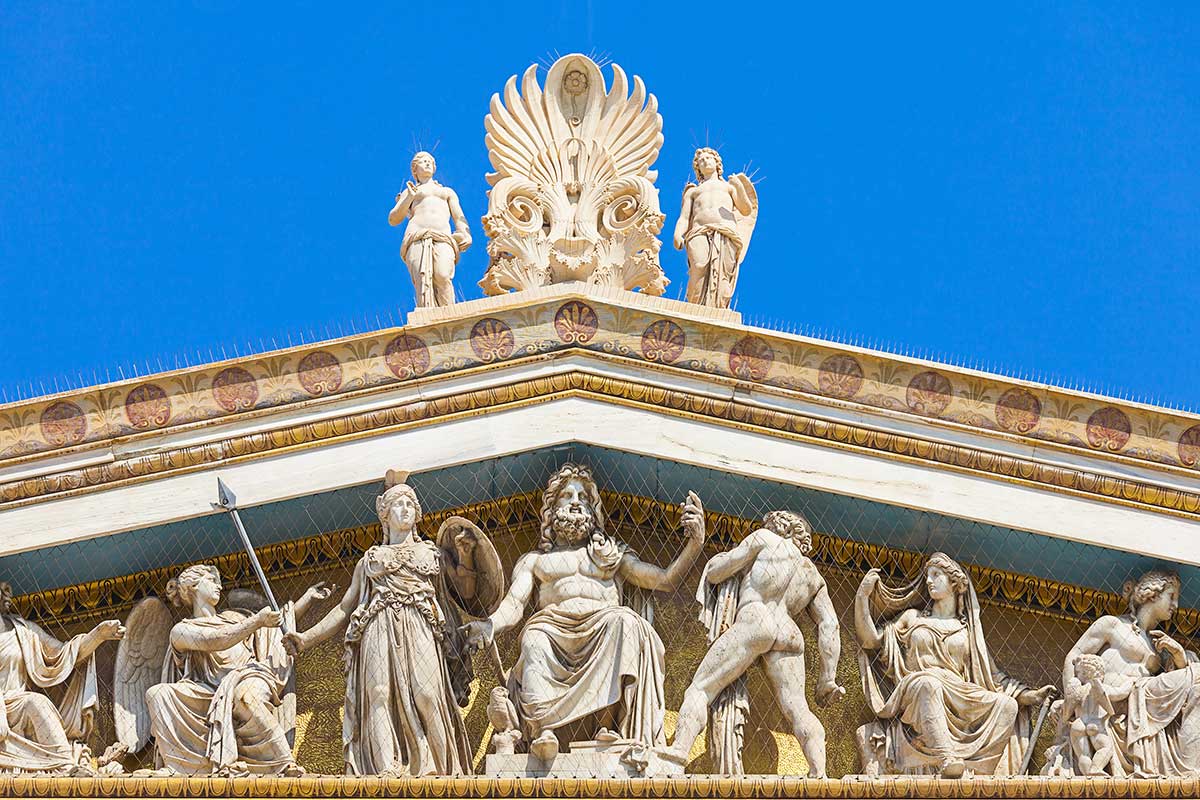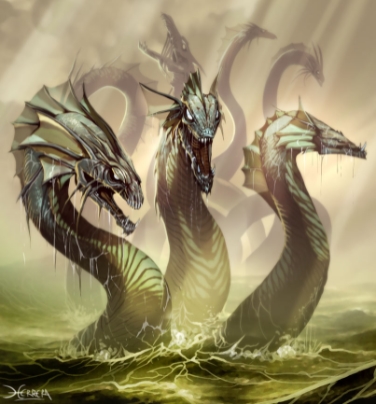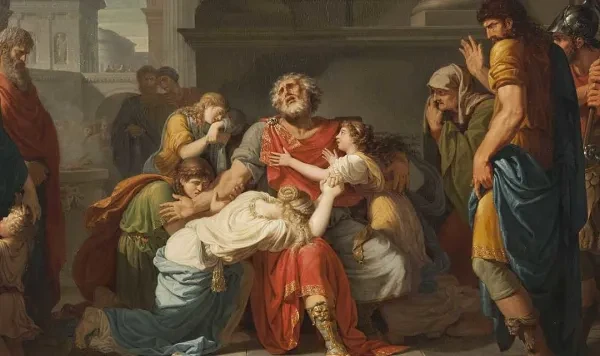
Greek stories are well known for their tragic elements. Characters are subject to unfair circumstances and doomed due to their own natures. They cannot change themselves or escape their fates. Punishment and pain are the only things they end up with. These are some of the worst tragedies throughout all of Greek mythology.
1) Daedalus and Icarus
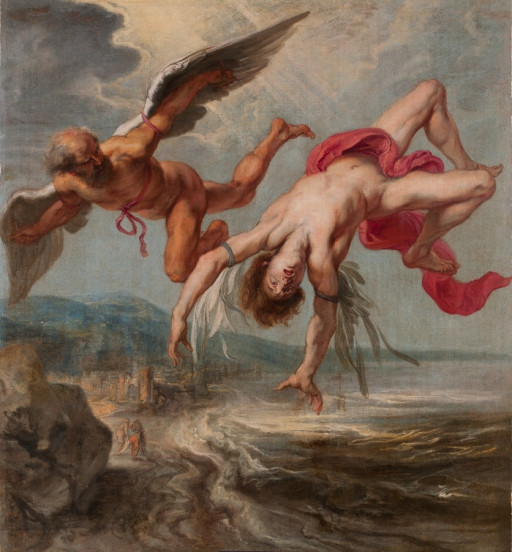
The tale of Daedalus and Icarus is a classic Greek myth. Daedalus was a great inventor on the island of Crete, and under King Minos’ instructions, he built a massive underground labyrinth. The Minotaur, a monstrous half-man, half-bull born of Minos' wife, was housed in this labyrinth. King Minos regularly sacrifices Athenian children to the Minotaur, leading to the hero Theseus’ attempt to navigate the labyrinth. The princess Ariadne wished to assist Theseus, and so she asked Daedalus for help. Daedalus gave her a ball of string to help navigate, but she was punished by Minos for revealing the labyrinth’s secrets. Daedalus’ punishment was being imprisoned in a tower inside the labyrinth. Daedalus was imprisoned with his son, Icarus.
Eventually, Daedalus hatched a plan to escape from the tower. He used scraps of cloth, thread, and beeswax to create two pairs of wings. Before they leap out of their tower, Daedalus warns his son about the weakness of the wings. If they fly too low, the dampness of the ocean will clog their wings. But if they fly too high, the sun’s heat will melt the wax. Daedalus and Icarus escape the tower, and Icarus is overcome by the joy and freedom of flight. Icarus marvels at how high he is able to fly, ignoring Daedalus’ warnings. Icarus’ wings melt away, feather by feather. He attempts to flap his wings, but that does not help him. Icarus' wings break, and he plummets into the ocean, where he drowns. Daedalus mourns his lost son, and when he lands, he names the island after Icarus.
This story is one of many Greek tragedies meant to show the folly of hubris. Icarus flies too high, which makes him feel superior to Helios, the god of the sun. But it is Helios’ rays of light that doom Icarus. It was Icarus’ own arrogance that led to his downfall.
2) Daedalus and Perdix
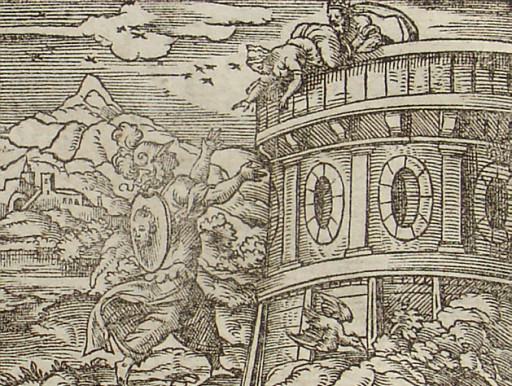
This sorrowful story also involves the inventor Daedalus. Daedalus’ sister sends her son, Perdix, to learn from Daedalus. Daedalus was renowned as a genius creator and inventor, and Perdix showed promise in those skills. But to Daedalus’ shock, Perdix rose above and beyond Daedalus’ expectations. One day, Perdix found the spine of a fish and attached it to a piece of iron, thus creating the first saw. Another time, Perdix connected two pieces of sharpened iron and connected them with a rivet, creating the first compass.
Daedalus grew jealous of his nephew’s remarkable genius. When the two inventors were on top of a tower, Daedalus’ envy overtook him. Daedalus pushed Perdix off the tower. Athena favored the brilliant inventor, and decided to spare him his fate by transforming Perdix into a partridge. Athena scars Daedalus with a bird-shaped mark, to remind him of his sin. Daedalus is also banished for the crime of attempted murder, which led him to Crete.
Daedalus’ banishment is due to his insecurity and envy. He threw away his life in a fit of jealousy over his nephew’s genius, showing the dangers of jealousy.
3) Midas
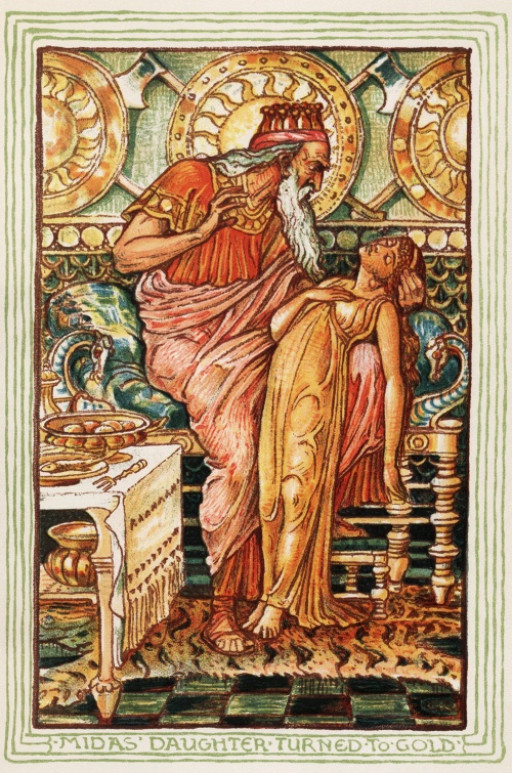
King Midas is known for his impulsiveness. In one of his tales, Midas comes across the half-man, half-goat Silenus. The satyr was incredibly drunk and had lost his way. Silenus also happened to be the adopted father and mentor of the god Dionysus. When Midas found Silenus, he treated him with kindness. Midas brought Silenus into his home for ten days, feeding and sheltering him. Then, Midas brought Silenus back to Dionysus. Grateful for Midas’ hospitality, Dionysus agreed to grant Midas one wish. Midas wished that everything he touched would turn into gold.
Midas first touched a twig and a stone, and was delighted when they both transformed into solid gold. Midas proceeded to touch every rose in his garden. Thrilled with his new power, Midas asked his servants to set up a feast. But when Midas tried to eat, his power continued to work. Food hardened in his mouth, and water turned into golden ice. Midas became frustrated. In some later retellings of the myth, Midas is then approached by his daughter. The princess was saddened by how their roses had lost their fragrance and softness. When Midas attempts to comfort his daughter, she too is transformed into gold.
According to some versions of the story, Midas is never freed from his gift-turned-curse. He starves to death. In others, Midas prays to Dionysus, who offers Midas a solution. By washing his hands in a river, the rushing waters drained away his powers. The river bank turns to gold, and Midas is freed.
Midas’ tale shows the audience to be careful what they wish for. Midas was impulsive, and chose a blessing that sounded nice, but quickly soured. His greed and impulsiveness were his biggest flaws.
4) Arachne
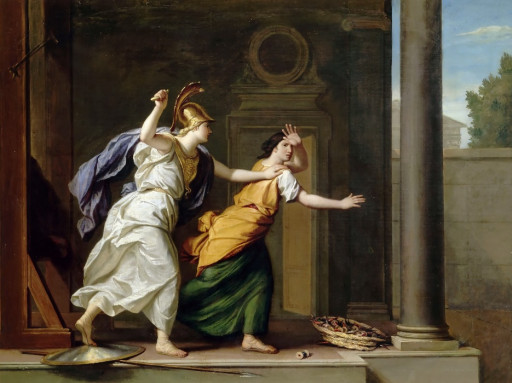
The story of Arachne is another example of hubris. Arachne started weaving at a very young age, and her skills grew rapidly as she aged. Once she became recognized for her weaving talents, she began to boast about her skills. Arachne claimed to be better at weaving than Athena, who was the goddess of crafts. Arachne also would not admit that any of her prowess was owed to Athena’s influence, instead saying it was all her own.
Athena disguised herself as an elderly woman and met with Arachne. Athena told the young woman that no mortal could ever hope to outshine the gods, and that Arachne should apologize to Athena for her arrogance. Arachne refused, and boasted that if Athena cared, then Athena could challenge Arachne herself. Athena then revealed herself, and the two immediately began their competition to see who could weave the best tapestry. Athena wove a piece that depicted the ways mortals had attempted to rise higher than the gods, and the ways the gods would punish those mortals. Arachne countered Athena’s weaving with her own, which showed the ways the gods had manipulated and abused mortals. When Athena saw that Arachne’s tapestry was a further insult to the gods, and that Arachne’s weaving was indeed better than Athena’s, the goddess grew furious. Athena shredded Arachne’s tapestry and hit Arachne on the head three times. Scared and ashamed, Arachne hanged herself. But out of love for Arachne, Athena decided to spare her from that fate. Athena sprinkled Arachne with juice from herbs Athena had gotten from Hecate, the goddess of magic. The juices transformed Arachne; her hair fell out of her head, and her body shrank. Her slender fingers became legs. Arachne was transformed into a spider, with the only remnant of her former self being her ability to weave.
This tale was meant to elicit sympathy for Arachne and distaste for Athena and the gods. While Arachne was the better weaver, Athena still punished her. Arachne’s hubris led her to challenge a temperamental authority figure, and Athena’s pride as a goddess refused to allow any insults to that pride. Arachne’s sad tale ends with her life being taken away, and the only thing she has left is her ability to weave.
5) Medusa
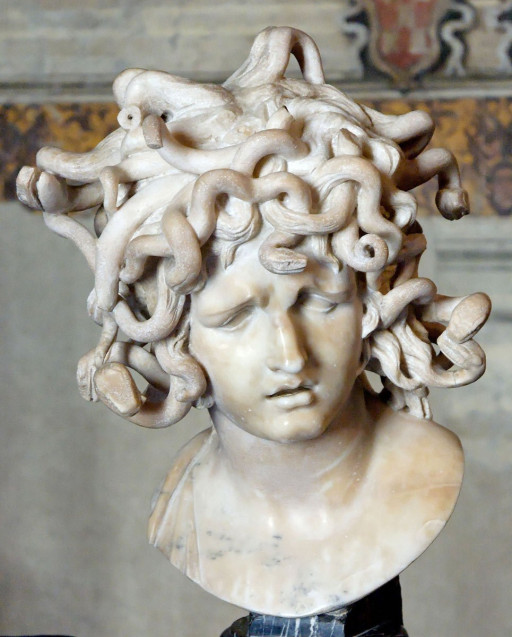
Medusa is commonly known for her monstrous appearance and abilities, like her snake hair and petrifying gaze. In earlier myths, she was only known as a gorgon monster. But later tales depict her as a much more tragic figure.
Medusa was once a beautiful maiden, and she was in a romantic relationship with Poseidon, the god of the seas. One day, the two met inside the temple of Athena, where they had sex. Athena was a chaste, virgin goddess, and found sex in her temple to be incredibly disrespectful. Athena could not harm Poseidon, a fellow god, so she turned all her fury on Medusa. Athena transformed Medusa into the monster she is frequently recognized as. In other myths, Medusa meets her demise at the hands of the hero Perseus, who decapitates her and uses her head to slay his enemies.
It is incredibly tragic that Medusa was punished with such a horrible transformation. Her fate is even more horrible when considering that, in some tellings, Medusa did not consent to Poseidon’s advances. She was unwilling, and a victim to the whims of two powerful gods. She truly did nothing to earn such a despicable fate.
6) Bellerophon
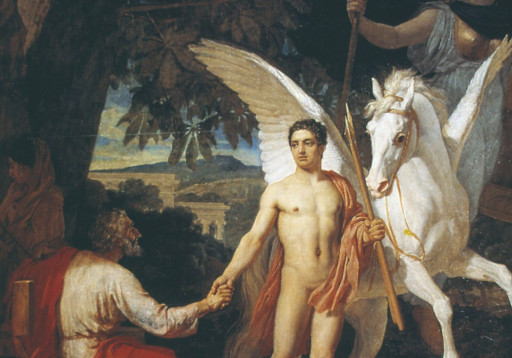
Bellerophon is one of the classic examples of hubris in Greek heroes. He slew many monsters and took on many quests in his prime. He was considered the greatest hero of his time. Parts of his story include taming the winged horse Pegasus and slaying the fire-breathing monstrous hybrid, the Chimera. He was honored as a hero, and that fame went to his head.
After his victory against the Chimera, Bellerophon decided that he had earned the right to be on Mount Olympus, the home of the gods. He mounted Pegasus and started to fly up the mountain’s slope. Zeus saw Bellerophon’s attempt and saw it as a vile act of hubris. Zeus sent a gadfly to sting Pegasus, causing him to rear up and knock Bellerophon off of his back. Bellerophon fell back to earth. He fell into a thorn bush and was blinded. Meanwhile, Pegasus completed the trip to Olympus, where he became an assistant to Zeus. On Earth, Bellerophon lived the rest of his days in misery.
Bellerophon is another mortal who thought himself equal to the gods, and he was struck down for trying to realize that idea. He could have lived out his life as a hero, happy with the fame and success he had. Yet Bellerophon wanted more, and that was his undoing.
7) Medea of Jason
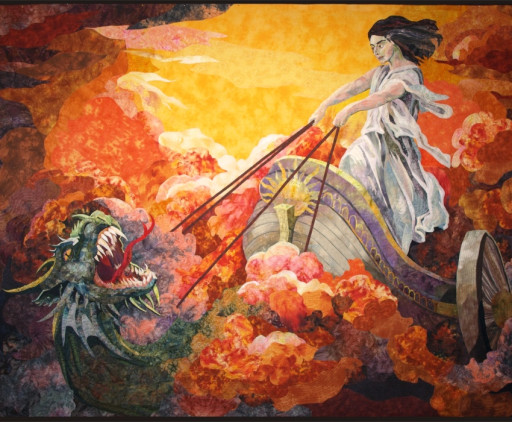
Medea is often remembered second to her love interest, but she was arguably much more important in their story. Medea was a sorceress princess, the daughter of the King of Colchis. The hero Jason traveled to Colchis in order to retrieve the Golden Fleece. The King would give the fleece to Jason only if he went through several deadly trials. These trials included taming a bronze, fire-breathing ox and fighting an army. Jason, and his patron Hera, knew that he would not be able to beat the challenges alone, so Hera used her power and influence to make Medea fall in love with Jason. Medea was conflicted about her love, not wanting to betray her family, but she ultimately decided to help Jason. She provides Jason with magic and advice on how to beat his trials, and Jason promises Medea that he will marry her.
Jason goes through his trials with ease, and the king realizes that Jason has gotten help. The king sends his soldiers after Jason, Medea, and the rest of their crew. The heroes manage to steal the fleece and flee on their ships, killing Medea’s brother along the way. When Jason returned to his home kingdom of Iolcus, the King refused to grant Jason the position of king as he promised. Jason asks for Medea’s help, who uses her magic to trick the King’s daughters into killing him. While the throne is empty, Jason cannot claim it, so the couple flees to Corinth. After marrying and having children with Medea, Jason starts courting the princess of Corinth, in an attempt to become the king of Corinth. Jason wants to marry the princess, and keep Medea and their children as a secret family. Jason’s betrayal greatly angers Medea, and she starts plotting her revenge. Medea gets her children to give the princess a present of a golden dress and crown, which Medea has poisoned. The poison is so potent that it kills both the princess and the king. Medea then kills her children to hurt Jason, and she takes a flying chariot to escape. As she departs, Jason confronts her. Jason claims that the ghosts of their children will take revenge for him, and that an avenging fury will make Medea pay. Medea counters Jason by saying the gods are on her side. Zeus, the king of the gods, punishes oathbreakers. And Hera, Jason’s patron goddess, is the goddess of marriage. There is no one willing to help Jason. Medea then escapes to Athens. There are no myths depicting her death, showing that the gods were actually on her side.
Medea’s story is incredibly tragic, as she sacrificed everything for the man she loved. She abandoned her home, and killed multiple members of her own family because of Jason. Jason was selfish and used Medea for his own gain. While Medea may have murdered many times, her crimes were just in the eyes of the gods. She goes unpunished, but her tragedy still lies in the fact that she lost so much, only to be thrown away.
8) Achilles and Patroclus
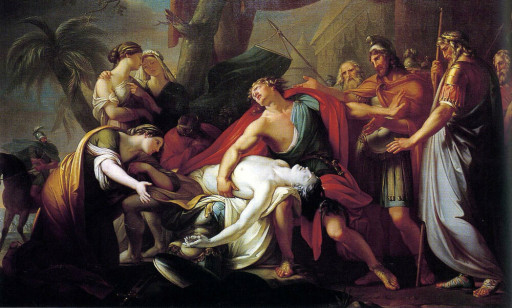
The story of Achilles and Patroclus is a twofold tragedy. These two soldiers were best friends, and often considered lovers. Achilles led his own army in the Trojan War, with Patroclus serving as his right hand man. One of their allies, Agammemnon, insulted Achilles, resulting to him refusing to fight. But as the war raged on, their allies started to get injured and die, which worried Patroclus. Patroclus pleaded with Achilles to join the fight, but Achilles refused. Eventually, Patroclus reached a compromise with Achilles. Patroclus would don Achilles’ armor and lead Achilles’ men on his behalf. Achilles agreed, just as long as Patroclus did not attempt to rush the gates of Troy. Achilles promised Patroclus that the two men would invade Troy together. But on the battlefield, Patroclus is killed by the Trojan Hector.
Achilles mourns Patroclus deeply. He learns that, if he kills Hector, Achilles is prophesied to die during the war, but Achilles does not care. He spends all his time either fighting or mourning. When he fights, he is overcome by such rage that the Trojans flee from him. When he mourns, he is inconsolable by any of his allies or family. In Achilles' rage, he forces most of the Trojans to retreat to their city, except for Hector. They fight one-on-one, and Achilles kills Hector. Achilles then drags Hector’s corpse behind his chariot, further humiliating the Trojans with this act of disrespect. Hector’s father, the King of Troy, pleads for Achilles to return Hector’s body, and Achilles is eventually moved by the King’s sorrow. He returns Hector’s body, and then worries that he may have dishonored Patroclus by returning Hector. Eventually, Achilles dies in battle from an arrow guided by Apollo. Achilles is buried with Patroclus.
Achilles' tale is one of pride and rage. Achilles refuses to fight when his honor is insulted, only for him to lose Patroclus. Then, overcome by his grief and hatred, he proceeds to slaughter the enemy without mercy. The only freedom Achilles can find from his anger is his own death.
9) Orpheus and Eurydice
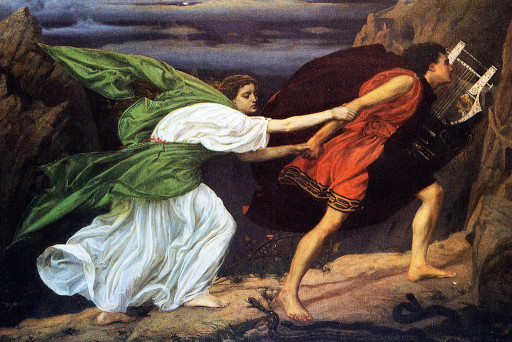
Orpheus was an incredible musician, famous throughout Greece for his talent. He fell in love with Eurydice, and the two were married. They are happy for a short amount of time, but one day, Eurydice wanders the woods on her own. She is bitten by a snake, and dies. Orpheus is so overcome with grief that his songs become woeful and powerful. His sadness is so intense that he is able to convey that sadness to everything, alive or not.
Orpheus makes his way to the Underworld, the realm of the dead. The three headed dog, Cereberus, guards the gates of the Underworld, but is subdued by Orpheus’ song. Orpheus finds himself in front of the King and Queen of the Underworld: Hades and Persephone. He plays music for the two, and moves Hades to compassion. Hades allows Oprheus to leave with Eurydice, but there is one condition. Orpheus must lead Eurydice out of the Underwold.As they walk forward, Orphus must never look back to see if Eurydice is still following him. If he does look back, Eurydice will be trapped in the Underworld permanently. Orpheus believes himself to be a man of great patience, so he happily accepts this condition.
The two start to walk out of the Underworld. Slowly, Orpheus grows suspicious. He cannot hear Eurydice’s footsteps. He fears that the gods tricked him. Only a few steps away from the exit, Orpheus looks back. Eurydice disappears, forever trapped, and Orpheus finds he is unable to return to the Underworld a second time. Orpheus lives the rest of his days in sadness, begging for death so he can be reunited with his love. If Orpheus had not let his doubt overcome him, the two could’ve had a happy life together.
10) Hippolytus
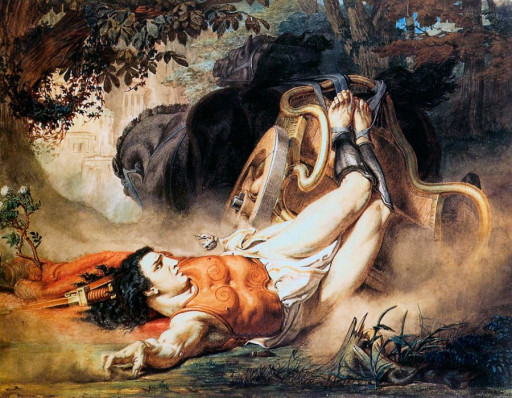
The Gods of Olympus often feuded with each other, and Hippolytus is one of the many mortals who suffered due to the godly conflicts. Hippolytus was a hunter, and he had no interest in romantic love or passion. These ideals are shared by the goddess Artemis, who is well known for her divine status as a virgin and hunter. Hippolytus worshiped Artemis, and would join her in her hunts. This, however, greatly angered the goddess of love, Aphrodite. Aphrodite was upset that someone would willingly swear off love, and took Hippolytus’ worship of Artemis as an insult. Aphrodite wanted to make Hippolytus suffer.
As punishment, Aphrodite cursed Hippolytus’ stepmother, Phaedra. She was forced to fall deeply in love with Hippolytus, so much so that she became physically ill in her desire. Phaedra’s handmaiden encourages Hippolytus to reciprocate her feelings, but Hippolytus is disgusted by the idea. This humiliates Phaedra, and she hangs herself to end her illness and shame. She leaves a note to her husband, Theseus, which accuses Hippolytus of attacking her. Theseus does not know that this is a lie, and he believes that his son is responsible for his wife’s death. Theseus gets his father, Poseidon, to take vengeance for him. Poseidon sends a sea monster to attack Hippolytus as he rides his chariot. The monster scares Hippolytus’ horses, and they panic and run away. Hippolytus ends up being dragged to his death by his panicked horses. Artemis consoles Hippolytus, as he dies, that she will ensure his memory will live on through worship.
Hippolytus truly did nothing to warrant his fate. He tried to live a simple, happy life, but the quarrels of the Olympian gods sent him to his unjust demise.
11) Oedipus
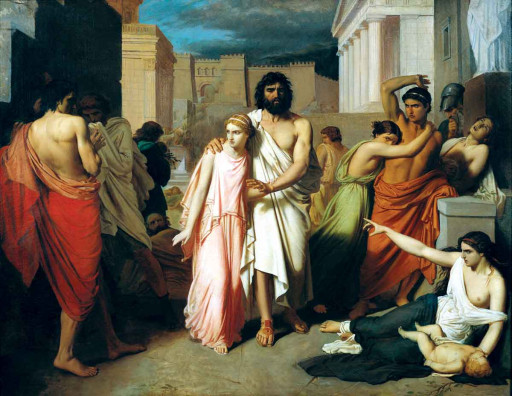
Oedipus Rex is perhaps one of the best known tragedies to originate from Greek mythology. The story begins with Oedipus, abandoned by his parents, now being raised by the King and Queen of Corinth. One day, Oedipus consults an oracle. The oracle tells Oedipus that one day he will kill his father and wed his mother. Oedipus, not knowing that the King and Queen are not his real parents, leaves Corinth to avoid that fate, believing he can outwit the prophecy.
As he roams, he comes across a procession of people led by an old man. Oedipus and the old man argue over whose chariot has the right of way. When the old man moves to strike Oedipus, Oedipus throws the old man to the ground, killing him. Once again, Oedipus is unaware of the reality behind this situation— the old man was actually the King of Thebes, and his biological father.
Oedipus ends up in front of Thebes, which is blocked off by a sphinx. The sphinx poses a riddle to Oedipus. When Oedipus answers, the sphinx kills itself. Oedipus enters Thebes as a hero, since the people were trapped in their city because of the sphinx. As a reward for killing the sphinx, the Queen of Thebes, Jocasta, agrees to marry Oedipus. The old king tragically died recently, but they were unable to learn more about his death due to the sphinx. Oedipus agrees to marry Jocasta.
While he reigns as king, a plague sweeps over the city. An oracle tells the royal family that Thebes is plagued by a pollution, which is taking the form of the murderer of the previous king. Oedipus is intent on finding out the cause of the plague, and consults another oracle. The oracle refuses at first, but after Oedipus’ convincing, it tells Oedipus that Oedipus is the cause of the plague. Oedipus refuses to believe it. He is consoled by Jocasta, who tells him that oracles are not always right. After all, she and her husband had previously consulted with an oracle, who told them that their son would kill the king. In order to prevent that, they abandoned their son. Oedipus realizes that Jocasta’s story matches his own perfectly, and they finally realize what they have done. Jocasta kills herself, while Oedipus stabs out his own eyes and flees.
Oedipus’ tragedy stems from his inquisitive nature. He constantly pursues answers, even when he is told that he won’t like the answer. If he hadn’t met with that first oracle, he likely never would have ended up in Thebes.
12) Echo and Narcissus
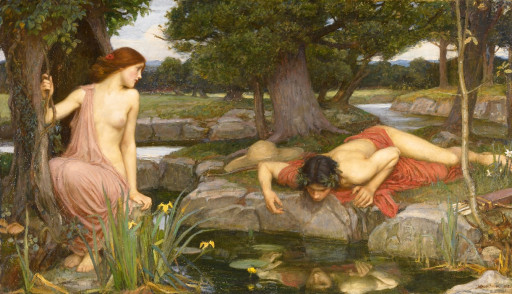
Echo was a nymph and a friend of the King of the Gods, Zeus. When Zeus leaves to romance mortal women, Echo is left to distract Hera, Zeus’ wife. Echo talked a lot, irritating Hera. Hera also learned of Echo’s trickery, and cursed the nymph. From then on, Echo could only repeat words recently said by others. This is how the term “echo” came to be.
Echo was in love with the hunter, Narcissus. Narcissus was famous for his physical beauty, and was considered to be the most attractive person alive. Narcissus was completely obsessed with his own beauty. He felt himself superior to others, and no one was worthy of his romantic love. He was too beautiful for someone else. So when Echo attempted to confess her love to Narcissus, using his own words, Narcissus rejected her soundly. Narcissus told Echo that she did not deserve to enjoy his body. Echo fled, heartbroken and humiliated.
However, Echo’s love for Narcissus did not fade. She continued to follow him. Her fellow Nymphs begged Nemesis, the goddess of vengeance, to give Narcissus what he deserved. Nemesis made Narcissus look into a pond, where he saw his own reflection. Narcissus fell in love with his own reflection, and physically could not stop staring. He was stuck there, only able to continue to look at himself, until he eventually wasted away to nothing and died. Echo stayed by Narcissus’ side, but she too started to fade away. Her body disappeared, until only her voice remained.
The story of Echo and Narcissus shows how tragic love can be. Echo fell in love with someone who did not value her at all, and she could never leave him. With her heart broken, she had nothing to live for. Narcissus, on the other hand, was cold and arrogant. He could only live for himself, so much so that he wasn’t able to do anything else to sustain himself.
13) Phaethon
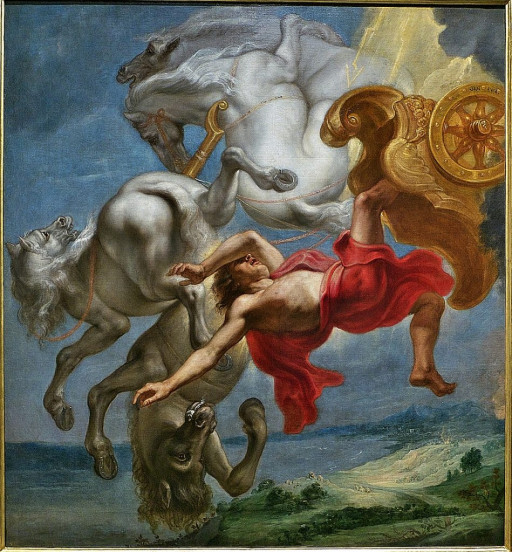
Phaethon was the son of Helios. Helios was the sun god, responsible for its movement across the sky. Helios drove the sun chariot, rising every morning and setting every evening. Phaethon journeyed to meet his father, and asked Helios for permission to drive the sun chariot for one day. Helios warns his child not to try, since driving the sun is incredibly important and dangerous. But Phaethon is not swayed, and still wishes to fly the chariot. Helios eventually allows him.
Phaethon takes the reins and starts to fly, but he has difficulty controlling the horses. At first, he flies too high. This brings the sun farther away from the earth, causing the land to become cold and freeze over. Correcting himself, Phaethon then brings the chariot too close to the earth. This scorches the land and causes fires to erupt. Zeus notices Phaethon struggling to keep control, and decides that the situation is too dangerous. Zeus hurls a lightning bolt at Phaethon, who falls from the chariot. He is killed when he collides with the ground.
Phaethon refused to listen to his father’s advice, and took on a task too dangerous for him. Once again, a mortal attempts to compare themselves to the divine. Phaethon’s hubris led him into a no-win situation, and he was killed to prevent further damage.
14) Ariadne
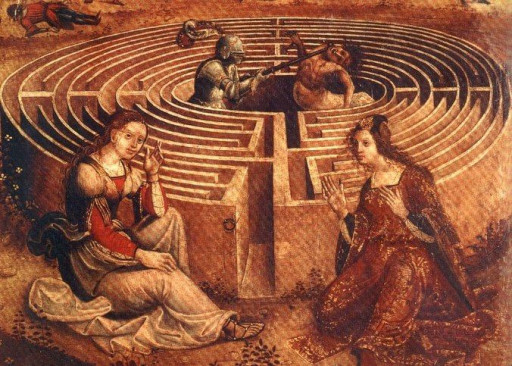
Ariadne has a similar story to Medea. She was a princess, the daughter of King Minos of Crete. King Minos called for young Athenians to be sacrificed in his labyrinth to the Minotaur. One year, one of the Athenians that would be sacrificed was the hero Theseus. Theseus had volunteered to go to Crete so that he could slay the Minotaur and end the cycles of sacrifice. When Theseus arrived on Crete, Ariadne fell in love with him, and decided to aid him in his quest. She gave Theseus a sword and a ball of string to navigate the labyrinth. She betrayed her father and her country for Theseus, and the two were married when he returned from his victory over the Minotaur. The two sailed away, but then Theseus betrayed Ariadne. He abandoned her on an island and sailed away.
Luckily for Ariadne, she was watched over by the god Dionysus. He witnessed her being abandoned and went down to her. Ariadne and Dionysus were married, and she was made immortal and allowed to live with him on Olympus. Ariadne had a tragic beginning after betraying her family for someone who did not value her. But she was fortunate to find love with a god, so her story has a note of optimism at its end.
15) Marsyas
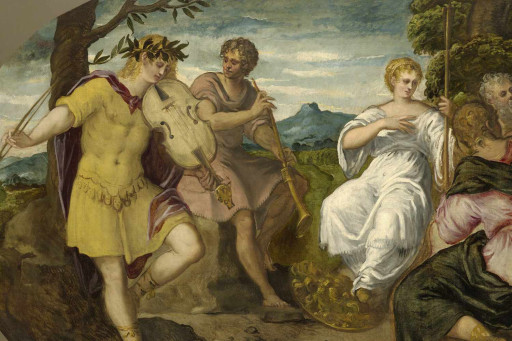
Marsyas was another character who was punished for challenging a god. Marsyas was a satyr, a nature spirit with the body of a man and the legs of a goat. Marsyas was a flute player, and he competed with Apollo to see who was the better musician. In their bet, it was stated that the winner could do whatever he pleased to the loser. Marsyas played his flute and stirred the audience into a frenzy, causing them to dance wildly. Apollo strummed his lyre, which caused the audience to calm down and even cry. Marsyas was declared the winner after the first round, which caused Apollo to turn his instrument upside down and play his tune again. Marsyas could not do the same with his flute, and so Marsyas was defeated. In other versions of this myth, Apollo won by adding his voice to his lyre playing. Marsyas contested this, since he believed that the bet was to see who was more skilled at their instrument. Apollo argued that his singing was no different from Marsyas using his breath to play the flute. Either way, Marsyas accepts defeat.
As his punishment, Marsyas is flayed and dies. Apollo nails Marsyas’ skin to a tree. Marsyas’ fellow spirits and family wept for Marsyas. Marsyas’ blood and the tears of those who loved him became the river Marsyas.
Marsyas lost his life for challenging a god. He believed in his own skill as a musician too much, and dared to challenge a god. Many translators of the myth believe that Marsyas being flayed was too harsh a punishment for him. Whether it was believable or not, it is undeniable that the satyr died in a horrible way.
You may also be interested in:
- Top 10 Most Powerful Gods in Greek Mythology (Ranked)
- 15 Most Frightening Greek Mythology Creatures
- Top 10 Best Greek Mythology Games
- Top 12 Gladiator Games Where You Fight to the Death
- [Top 15] Greek Mythology Monsters And What They're Famous For
- [Top 15] Greek Mythology Goddesses And What They're Famous For
- [Top 25] Best Greek Mythology Movies To Watch Right Now

